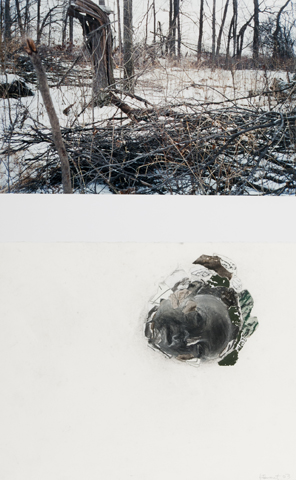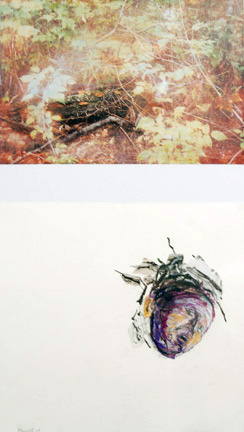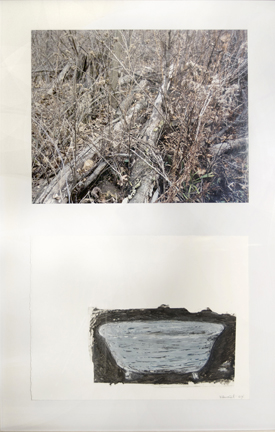About the Photographer
Klement, Vera
American, b. 1929 Danzig
Vera Klement was born in 1929 in Danzig, a German Hanseatic state that later became part of Poland. She emigrated to the United States in 1938, six months before the outbreak of World War II. Klement went on to earn a degree at the Cooper Union School of Art and Architecture in 1950, and since 1965 she has been active in Chicago as an artist and professor at the University of Chicago, where she taught for twenty-five years.
For most of her artistic career Klement has worked primarily as a painter, influenced early on by abstract expressionism and avant-garde music. Starting in the late 1970s, Klement began painting diptychs that pair figurative and abstract images, subtly dissolving the line between these modes of representation rather than asserting them as contradictions. Although the respective sections of the paintings may appear to be very different they develop poetic connections on a more intuitive level. Throughout these works Klement develops themes of solitude, death, and loss. On the occasion of an exhibition in 1999, Klement reflected on her career thus far, saying, "the endeavor serves, in my mind, as a memorial, a marker, for all those who were silenced in totalitarian states and those whose voices rose from that silence. And the silence itself."
In her more recent multi-media works on paper, Klement gives shape to meditations on war and death while further exploring the possible effects of pairing images. The War Monody series, which Klement began in 2003, combines color photographs of forest landscapes during different seasons with collaged drawings of solitary heads on larger sheets of white paper. A monody is a poem lamenting a person's death, and with this in mind the desolate winter landscapes, in particular, elicit a feeling of loss. The trees depicted in the photographs may also bring to mind the bodies of fallen soldiers. In each of the adjacent drawings, meanwhile, Klement gives an individual head mass and dimension, rendering it as a complete object that condenses the entire human form, like the sculptures of Brancusi, suggesting a larger whole. The heads are surrounded by a blank space that could symbolize silence, but their positioning on the white page suggests an existence in tangible space and a transfiguration to a higher state. In this sense the works have a celebratory aspect as well.
http://veraklement.com
Gallery talk at the MoCP: http://vimeo.com/36294213




